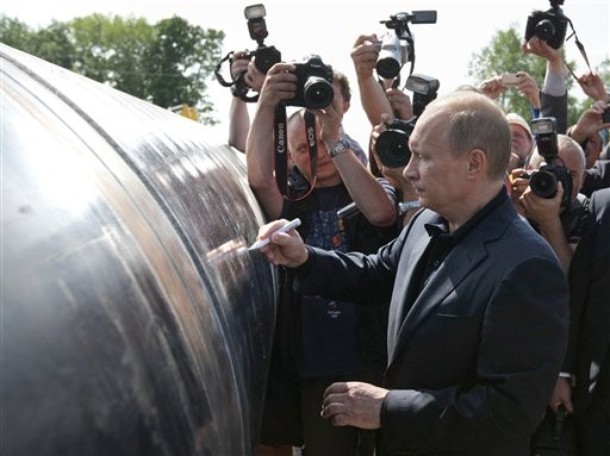Russia's weak energy empire.

The Wilson Center's Stacey Closson argues that Russia's energy empire isn't exactly the over-powering entity many in the West fear:
Some 85 percent of the EU-12 (newer inductees to the European Union from Central and East Europe) still rely on Russian gas imports but, Closson said, this figure is misleading. While 40 percent of all gas entering Europe is from Russia, only about 6 percent of it is used for primary energy consumption. In other words, some 94 percent of European energy consumption comes from non-Russian gas.Closson argues that Russia is not an emerging energy empire. â??People may think Russia is in control,â? said Closson, â??but Russia depends on energy sales to Europe for more than 60 percent of its hard cash earnings, so there is a strong degree of interdependence."
There is a similar dynamic - between the anxiety of consuming countries and the perceived power of the exporting countries - when it comes to Middle Eastern oil. But in that case, the exporter's power is even weaker than in the case of Russia. Middle Eastern economies are even less diverse than Russia's, making them far more dependent on the export of oil. There's a reason why the so-called "oil weapon" was used once and never wielded again.
So much of American policy in the Middle East is predicated on the fear that the oil will stop flowing, but there's no indication that the various leaders of the Middle East want to starve. And that includes the leaders of Iran.
(AP Photo)











